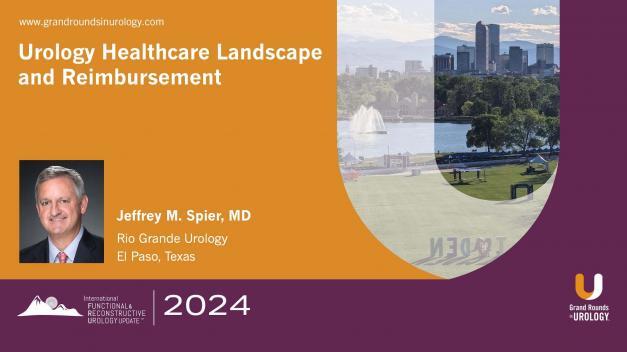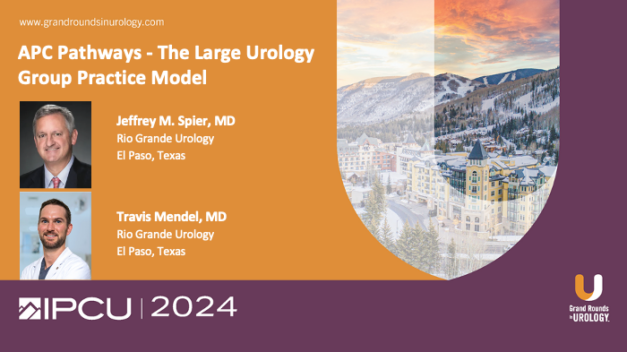LUGPA Talk: Healthcare Landscape, Reimbursement
Jeffrey M. Spier, MD, focuses on reimbursement, healthcare policy, and the role of advocacy in the current urology healthcare landscape. In this 10-minute presentation, Spier highlights LUGPA, which represents independent urology practices, promoting best practices, business acumen in urology, and policy advocacy.
Spier emphasizes the importance of urologists and healthcare professionals engaging in legislative advocacy to address issues such as reimbursement cuts, regulatory burdens, and rising operational costs. He notes that healthcare consolidation can negatively impact patient care and stresses the need for reform, particularly in areas like the Medicare fee schedule.
Spear advocates for unity within the urology community. He remains optimistic, calling for collective efforts to secure better outcomes for both physicians and patients while urging professionals to engage at local and national levels to make meaningful change.
Read More

